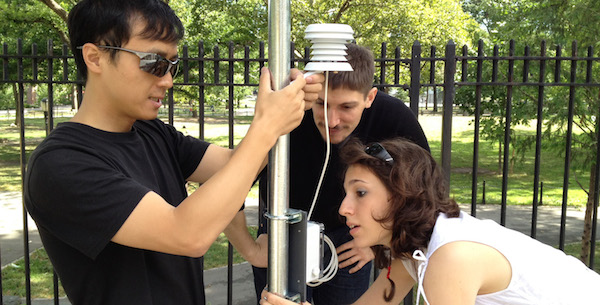Advanced Research Seminar on Urban Climate
The course examines the spatial and urban design influences on urban climate, and the effects of climate variability and extremes on population health in urban neighborhoods. Using New York City (NYC) as a case study, the seminar will explore the determinants and impacts of the summertime thermal environment in select Bronx neighborhoods; analyze how urban climate is influenced by the design and use of the built environment, and develop strategies for environmentally-sound adaptive responses to extreme heat events in housing and the built environment. Concepts covered include: history of the NYC built environment; principles of climate adaptive planning; urban health disparities and spatial analysis of environmental stressors; environmental justice and climate change; and adaptive responses to reduce heat-health impacts in NYC neighborhoods.
Blends classroom teaching on these topics with student teamwork and presentations, discussion of research and readings, and individual feedback from instructors. Student work will be evaluated through team projects and individual work that uses spatial, quantitative and qualitative research to develop understanding of the relationship between urban form and the heat island effect in NYC neighborhoods, and to produce recommendations for modifications in the built environment that may reduce energy use and assist residents in adapting to climate extremes. As an advanced research seminar, course meetings will include a workshop-style discussion of student research. Prerequisites include knowledge of spatial analysis techniques (GIS). The course is expected to include at least one trip to NYC for field research.
